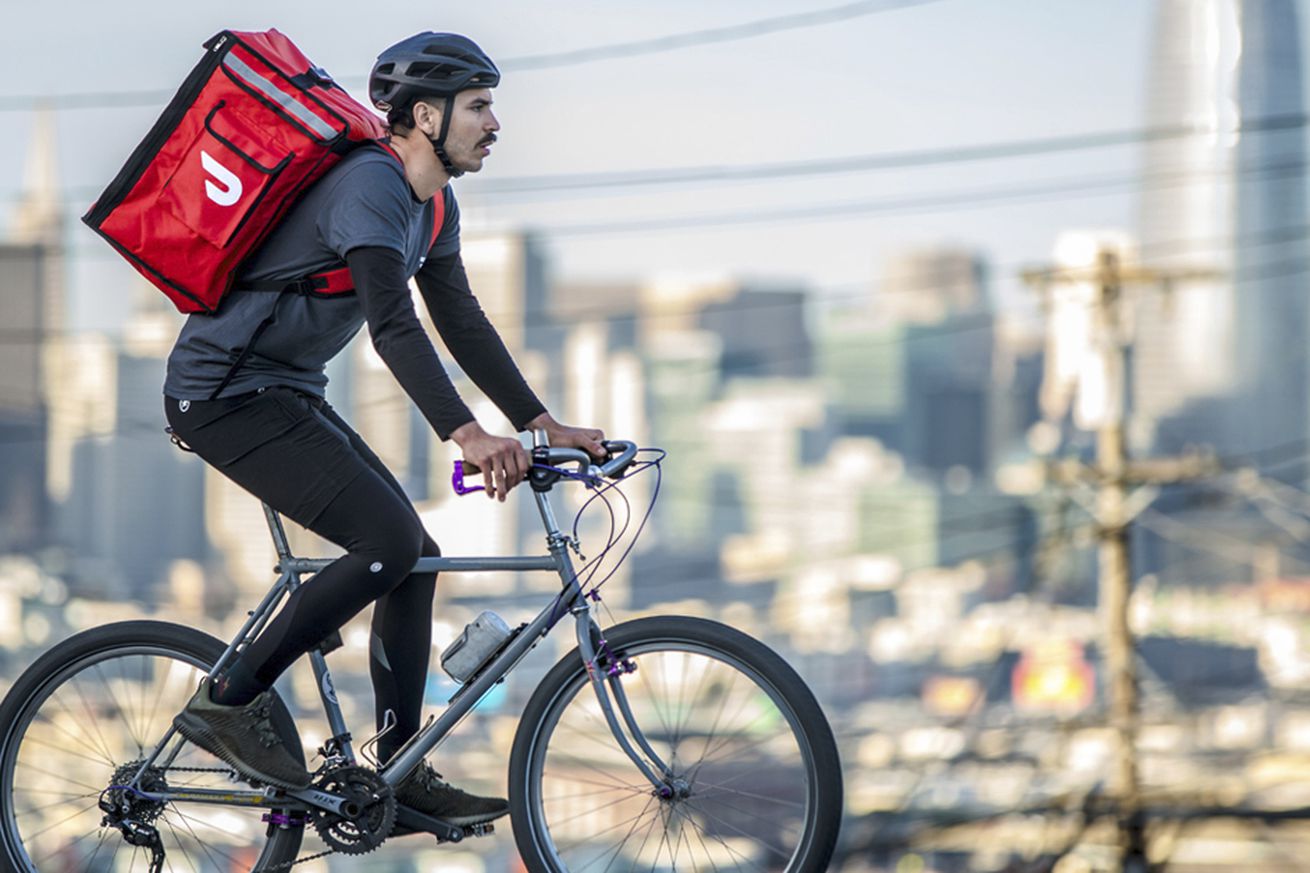
NYC food delivery gig workers score a big minimum wage victory
New York City gig economy workers just scored a significant victory as Mayor Eric Adams and the New York City Department of Consumer and Worker Protection (DCWP) announced on Sunday a new minimum wage of $17.96 per hour, effective on July 12th, for food delivery workers (via Quartz). That wage will grow to $19.96 on April 1st, 2025.
The new pay rate bumps workers up from their current $7.09 per hour minimum wage, and when it reaches its full rate, it amounts to a near-tripled base pay for more than 60,000 food delivery workers in the city, with annual inflation-adjusted raises. Ligia Guallpa, executive director of the Worker’s Justice Project, said in an email to The Verge, “We’re proud to have secured this historic victory for delivery workers. New York City’s more than 65,000 app-based food delivery workers will finally get the pay increase they deserve, allowing them to better support themselves and their families after being denied a living wage for years.”
“We welcome this wage increase that many of our members organized for, so that this city begins to properly value the delivery workers’ labor, their experiences, and risks,” said Kazi Fouzia, director of organizing for Desis Rising Up & Moving (DRUM). “And we remain vigilant to ensure that delivery app corporations do not maneuver to undermine workers by cutting hours or orders or exploit other loopholes.”
The DCWP press release detailed how the pay increase will work. Apps can either pay workers per trip, per hour worked, or come up with their own formula, so long as the result is a minimum pay of $17.96 per hour on average (up to $19.96 by April 2025). That works out in 2023 to 30 cents per minute before tips for hourly workers or, if an app only pays by active trip minutes, approximately 50 cents per minute of trip time.
In April, DoorDash executive Sascha Owen said at a hearing on the subject that the new policy would mean “$33.27 per hour for platforms selecting the trip time pay option.”
DoorDash public affairs manager Eli Scheinholtz repeated the claim in an email to The Verge, saying, “The ultimate outcome of this final rule could result in a $33-per-hour rate while on delivery — a pay rate that far exceeds the standards that apply to nearly every other industry in New York City.” “Given the broken process that resulted in such an extreme final minimum pay rule, we will continue to explore all paths forward — including litigation — to ensure we continue to best support Dashers and protect the flexibility that so many delivery workers like them depend on,” he said.
DoorDash’s estimate only works if you don’t count the time Dashers are waiting idly, which the DCWP found is about 40 percent (PDF) of their workday — in other words, using DoorDash’s figure, someone who spends six hours of a 10-hour shift on trips would end up with just under $20 per hour. And as Scheinholtz noted, “It’s up to the companies to determine how it’s paid out,” giving them alternatives to paying per trip minute.
The new minimum wage comes after years of organized efforts by groups like Los Deliveristas Unidos and the Worker’s Justice Project to increase their pay. Originally, it would have been $25 per hour, but that was lowered by the DCWP in March to account for delivery workers making trips for multiple apps at a time, a justification the NYC comptroller’s office called “inappropriate.”
The Deliveristas cite poor and often dangerous working conditions as well as the high cost of operating expenses in a petition to raise the minimum pay, adding that expenses can total nearly $17,000 per year.
In 2021, Josh Dzieza, The Verge’s investigating editor, painted an in-depth portrait of what the city’s delivery workers face, one that showed workers delivering ice cream in a hurricane, chasing down bike thieves, or being slashed by knife-wielding attackers while working.
Against the broader backdrop of gig worker organizing, this new regulation is a particularly poignant victory, as efforts to improve conditions and pay for those workers have gained steam at the state level but saw some federal attention last year as the FTC said it would investigate gig companies over wage-fixing. New York City has a history of forging a path on pay for gig workers; in 2019, the city began requiring a similar pay bump for rideshare drivers.
In an email, Gustavo Ajche, founder of Los Deliveristas Unidos, told The Verge that, regardless of legal action potentially coming from delivery companies, the group would “continue organizing people in the streets as we have been doing for 3 years” and added that the Deliveristas “are committed to working with all agencies to continue educating workers regarding safety and traffic laws.”

